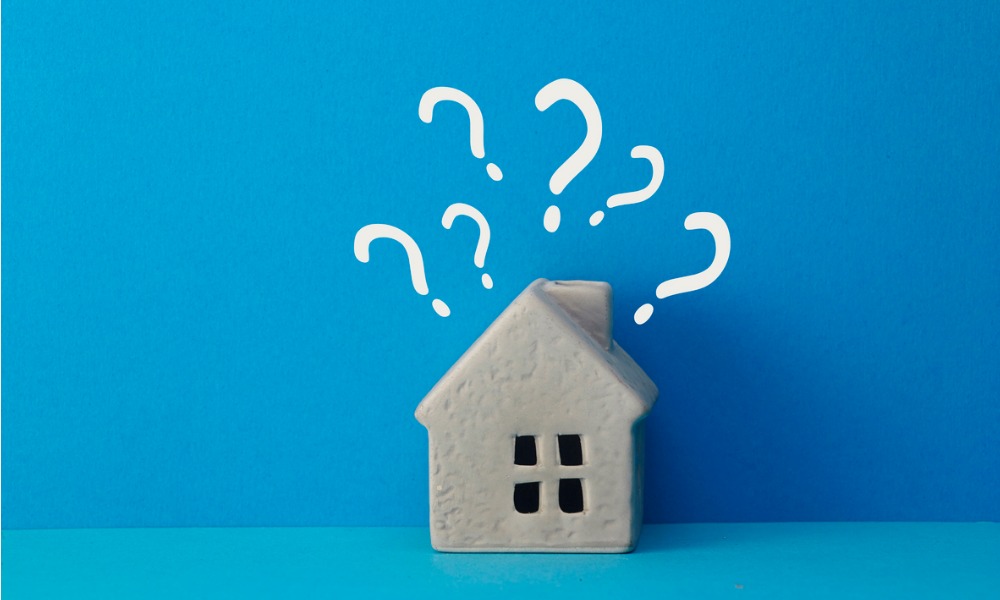They also argue on whether the market is now a buyers' or a sellers' market

This week’s market chaos has seen a number of big banks and smaller lenders pull their mortgage products from the market. A series of events triggered the mayhem. The Bank of England raised its base rate to its highest level in nearly 14 years on Thursday last week. Finance minister Kwasi Kwarteng’s mini-budget a day later sent the pound plunging to an all-time low on Monday. In addition, the central bank is still expected to further increase interest rates again in an emergency meeting to help the sterling recover.
Experts believe that a reduction in buyers’ financial firepower will be enough to cause a drop in house prices. But is a house price crash imminent? Is the housing market now a buyers’ or a sellers’ market? Brokers have provided some contrasting answers to these questions.
“Will there be a house price crash?” Ian Hewett, founder of Ashford-based The Bearded Mortgage Broker, restated the question before giving an answer. “Probably not is my thinking.
“This morning, I started browsing the local estate agents that are all clustered within a small area of my local town. I noticed that most of the windows were only showing a very small selection of houses for sale and, in some cases, the same house but with a different picture.”
This means, Hewett said, that the property market is still a sellers’ market as “the lack of stock was startling.”
“Yes, mortgage rates have increased dramatically, along with all household bills, so affordability is going to be a challenge,” he added. “But the extreme lack of stock will likely prevent a crash even if demand drops off sharply.
“Without doubt, the housing market will stabilise, and the rate of price growth will slow, perhaps considerably, but as always prices will start to go up again once the economy shows some signs of stability. People will always want to buy property.”
Read more: BoE delivers verdict on UK housing crash.
Joe Garner, managing director at London-based property developer NewPlace, thinks there will “very possibly” be a crash in some areas; in others, prices will stabilise; and in other areas still, prices could increase.
“The type of property will also play a role in how it fares in the weeks and months ahead,” he said. “While owner-occupied property prices are likely to fall due to the reduced availability of mortgages and liquidity, we will likely see a big shift upwards in the value of rental accommodation.
“People still need somewhere to live, and if they can’t buy, they have to rent. If the demand for rental properties increases then so do the rental payments, which in turn increases the yield, resulting in an uplift in the value of the rented property.”
Michael O’Brien, managing director at Romford-based Home of Mortgages, pointed out that the market is not in the grave position as it was back in 2008 yet.
“For now, at least, first-time buyers can still purchase with a 5% deposit,” O’Brien added. “There’s no doubt that the cost of borrowing is increasing, however, faced with the alternative, namely the ever-increasing cost of renting, a mortgage is still a more comfortable alternative. That will likely support prices as people will still want to exit the rental market wherever possible.”
Rob Peters, director of Altrincham-based Simple Fast Mortgage, believes that if interest rates reach 6%, this will certainly price some buyers out of the market and put downward pressure on property values.
“Is the British demand for property strong enough to overpower a 6% interest rate?” he asked. “I am not sure. The property market is about to be tested like never before.”
For Graham Cox, director of Bristol-based Self Employed Mortgage Hub, unless inflation falls much more quickly than predicted, there will be a sizeable fall in house prices, possibly more than 20% over the next two to three years.
“If you use simple maths and common sense, how can house prices not fall?” Cox said. “A lack of housing supply won’t help one iota when mortgage rates are somewhere between 5% and 7%, as is likely over the coming months.
“First-time buyers won’t be able to borrow as much, therefore they won’t be able to offer as much. It’s as simple as that. The truth is, housing is vastly overpriced and decoupled from average wages thanks to extended terms, higher income multiples and, above all, dirt cheap rates.
“With rates on the rise, the decade-long property bubble is about to burst. The worm has turned. It’s a buyer’s market now.”



